Exploring Different Types of Home Financing
Navigating the world of home financing can be overwhelming, especially with the variety of mortgage options available. For those looking to purchase a home, understanding the different types of financing can help you make a well-informed decision that best suits your situation. Here’s a breakdown of the most common types of mortgages you’ll encounter:
- Conventional Mortgages
Conventional mortgage loans are the most common kind of mortgage. They are available as fixed-rate and adjustable-rate– see #2 and #3. These are ideal for borrowers with good to excellent credit and a stable income. They often come with lower interest rates and flexible terms. Conventional loans typically require a minimum of a 5% down payment, but in certain cases you can qualify for as low as a 3% down payment.
One thing to keep in mind is that conventional loans require Private Mortgage Insurance (PMI) for homes with less than a 20% downpayment.
- Fixed-Rate Mortgages
Fixed-rate mortgages are the most straightforward type of home loan, offering a consistent interest rate and monthly payment over the life of the loan. This predictability makes them a popular choice for many homebuyers. These types of loans are often best for homeowners who plan to stay in their home long-term and are typically available in 15, 20, or 30-year terms.
- Adjustable-Rate Mortgages (ARMs)
ARMs offer lower initial interest rates compared to fixed-rate mortgages, which can be beneficial if you plan to sell or refinance before the rate adjusts. However, the interest rate can fluctuate based on market conditions after the initial period, typically 5 or 7 years, which can lead to higher payments down the road. ARMs are best suited for those who are financially flexible and can handle potential changes in their mortgage payments.
- Non-Conforming Loans
Non-conforming loans are loans that do not meet conventional or government requirements. This can be based on income documentation requirements, or recent credit challenges like bankruptcy or foreclosure. Rates and down payment requirements on these programs are historically higher than conventional or government requirements. Terms can vary from adjustable to fixed rate and can have prepayment penalties in certain cases.
- FHA Loans
The Federal Housing Administration (FHA) offers loans that are more forgiving of financial blemishes and allow for lower down payments, sometimes as low as 3.5%. In some instances you can qualify for a zero down payment FHA loan, with the help of down payment assistance programs. This makes them an attractive option for many residents who are first time home buyers or who might not qualify for a conventional loan.
- VA Loans
VA loans are available to veterans, active-duty service members, and eligible surviving spouses. These loans, backed by the U.S. Department of Veterans Affairs, often require no down payment and offer competitive interest rates. VA loans are a fantastic benefit for those who have served, providing them with a path to homeownership with favorable terms.
- USDA Loans
For those looking to buy property in rural areas, USDA loans can be a great option. Backed by the U.S. Department of Agriculture, these loans offer no down payment and competitive interest rates. They are specifically designed to help low-to-moderate income families purchase homes in designated rural areas.
- Jumbo Loans
For those looking to finance a larger purchase, jumbo loans are any loan amount over the conventional loan limit. The conventional loan limit varies by county in each state. For example, as of today a first mortgage amount over $766,500 in Iron County, Utah would be considered a jumbo loan. These loans require a higher credit score and down payment and typically require reserves (money available after closing on the loan) to qualify. On average, rates are slightly higher than a conventional loan.
Choosing the right mortgage is crucial for a smooth home buying process and understanding these different types of mortgages can help you find the best fit for your financial future. Always consider consulting with a mortgage professional to guide you through the intricacies of each option and help you make the best choice for your circumstances. If you are in the market for a new home, contact us to learn about the incentives and financing options we have available for our developments.
Tags: homebuilder in cedar city ut, homes for sale in cedar city ut, new homes for sale in cedar city ut